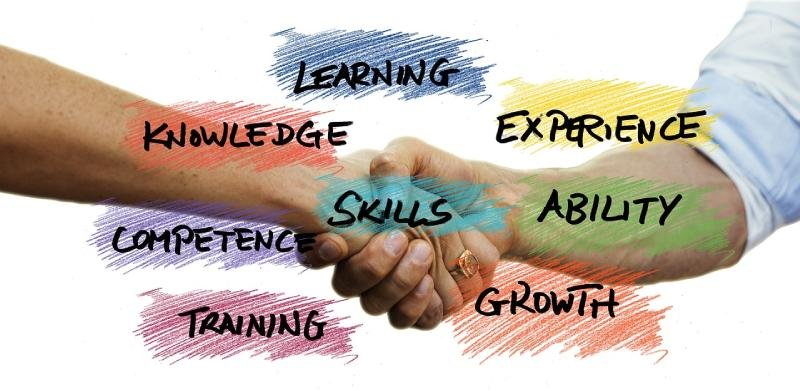Travel is in many cases depicted as the best type of training, one that shows people more about the world, societies, and themselves than any homeroom setting can. Whether it’s the energy of investigating new urban communities, the quietness of nature, or the excitement of experience, venturing out opens ways to encounters that improve life in endless ways. In an undeniably interconnected world, travel has become more available, and with it, the craving to investigate, comprehend, and value the variety that exists inside our worldwide local area has never been more significant.
This article dives into the different elements of movement — what it means for self-awareness, widens points of view, invigorates the economy, and encourages social comprehension.
The Individual Advantages of Movement.
1. Self-Revelation and Development

Travel takes people out of their comfortable circles. When you take those familiar natural environmental factors, you’re put to the test with your usual ways of seeing and doing. The discomfort that arises can lead to awesome self-awareness. It could be getting lost in a new city and not knowing what anyone says or just trying to figure out how to thrive in a different environment and lifestyle. But each travel builds on self-revelation.
Travel has indeed given many people the chance to view themselves with greater clarity.
When the familiar comforts and routines are stripped from you, you have to reach out more directly to your reality. This often means, reassessing one’s needs and values, sometimes even re-evaluating vocational choices, relationships, or life goals. Overcoming travel challenges – whether as meager as figuring out how to utilize nearby vehicles or as broad as investigating social contrasts — makes adaptability and confidence. Linkhouse
2. Mental Wellness and Prosperity

Another significant advantage of movement is its effect on psychological wellness. Unwinding from the intricacies of everyday life to encounter new experiences in a different clamor has been shown to reduce feelings of stress and improve outlook.
Research has shown that excursions reduce the chance of suffering from heart disease, improve mental acuity, and promote happiness. With the promise that exercise offers, an individual is given the ability to reconnect with themselves or himself and come together in the moment, which leads to a healthier life for one’s mind.
Going on a trip to any nature-resilient destination will benefit in more than one way. Being in the midst of naturalistic views with mountains forests and oceans surrounding the surroundings reduces anxiety and mental clarity. Whether hiking in the mountains or relaxing on a serene ocean shore, these situations promote care and a sense of solidarity with the earth.
3. Shattering Old Habits and Developing New Ones

Wardom can easily become monotonous, which can be the reason for burning or losing motivation.
Travel breaks monotony when it involves new activities, food, and ways of living. It encourages individuals to take up new things — whether it’s trying out end strange food, taking bold games like paragliding, or participating in neighborhood practices such as cooking or moving. These new experiences can provide better propensities, such as concentrating time outside, exploring other avenues regarding various sorts of activity, or admiring more slow minutes in life.
Go as a Means to Open Perspectives
1. Social Adaptation and Opposition

Perhaps one of the most important impacts of mobility is how it opens up perspectives.
Being open to other societies allows for a distinction of generalizations and confusions they may have had. Through travel, you engage with the local culture, language, and practice that may be utterly different from yours and thereby allow you to understand the details of building up other social orders.
Interaction with other societies improves empathy and activism. By approaching alternative ways of living, people can better appreciate the virtues and viewpoints of others, causing more significant social consciousness. This social exchange is fundamental in a world that is increasingly interconnected yet frequently divided by misconception and prejudice.
Whether traveling to a busy metropolitan center or a remote town, every place has something unique to offer, and learning from these experiences can lead to a deeper understanding of human diversity.
2. Increasing Global Consciousness

Traveling also fosters global consciousness, which is critical in this modern era.
The more one learns about other countries, their hassles, and achievements, the more likely he or she is to engage in global conversations. Taking a trip to a country that is essentially affected by climate change will enable people to understand the global impacts of environmental issues and encourage them to act within their communities. Further, travel can be an exposure to the differences in wealth, education, and healthcare that exist all over the planet. For those from additional favored foundations, encountering these distinctions firsthand can start craving to add to positive change, whether through charitable effort, support, or just pursuing more cognizant decisions in their regular routines.
3. Acquiring Verifiable and Imaginative Experiences

Each spot has a set of experiences, and travel gives the potential chance to find out about the
This, none of the course books could have done. Walking through the streets of an old town or visiting historical landmarks enables people to gain deeper feelings about events that shaped those places. This experiential learning changes the world because travelers can feel the presence of the past in the buildings, monuments, and art that they encounter.
Workmanship and engineering also offer insight into the characteristics and creativity of the people. While visiting museums, exhibitions, or even pondering street workmanship, tourists can appreciate the creative skills and innovations that characterize various cultures. Whether it is the Renaissance art of Italy, the intricately carved Angkor Wat, or the colors of Peru, each locality offers a unique point of focus: through which to see human imagination.
The Financial Effect of Movement
1. Helping Nearby Economies

Travel plays a huge part in invigorating nearby economies, especially in districts where the travel industry is significant. At the point when explorers burn through cash on facilities, eating, transportation, and exercises, they infuse capital into nearby organizations, making position and lift pay for neighborhood networks.
The travel industry can be a main thrust for monetary turn of events, particularly in emerging nations where there might be restricted open doors for work in different areas. Now and again, whole networks are worked around the travel industry, with nearby aides, specialists, and specialist organizations profiting from the deluge of guests. Furthermore, the advancement of framework to make the travel industry — such as air terminals, streets, and public offices — work on the personal satisfaction of residents as well.
2. More Manageable The Travel Industry

As movement increases, so does the need for more manageable travel industry practices. While the travel industry can be a boon for economies, it can also have negative ecological and social impacts if not managed properly. The travel industry, For instance, can strain adjacent assets, damage environments, and trigger the disintegration of social legacy.
Nonetheless, the concept of a responsible tourism industry has gained its momentum of late, promoting responsible tourism that has positive impacts and contributes to the well-being of local communities. This includes encouraging eco-friendly accommodations, selecting experiences that consider the environment, and engaging in tourism that is beneficial to neighborhood economies rather than global organizations. In addition to this, the travel sector inspires explorers to be aware of their carbon impressions, reduce squandering, and not contribute to the degradation of social and natural assets.
3. Setting out Occupation Open doors

The tourism sector is perhaps one of the biggest employers on earth, with various opportunities open in different areas. From hotel personnel to community specialists, transport providers to local craftsmen, the opportunities available to businesses are almost endless. In many regions, the tourism sector can be a lifeline, opening up job opportunities where other industries may be woefully\deficient.
The tourism sector can open the world for local craftsmen and entrepreneurs who want to showcase\their wares: handmade wares, exhibitions of traditional craftsmanship, or self-manufactured goods. This will provide both economic benefits and safeguard social practices. that in one way or another might become at risk of disappearing.
The Challenges of Mobility in an Impacting World
1. How COVID-19 Impacts Mobility

The COVID-19 pandemic radically changed the landscape of global mobility, epitomizing its strengths and vulnerabilities. International borders were closed for many months, flights were grounded, and the travel sector was stalemated. Many destinations that rely heavily on the tourism industry were severely affected due to financial stability; companies closed down and local communities tried to cope.
However, the pandemic also caused a review of travel needs. Many tourists became more conscious of their impact on the destinations they visited, settling on objections that provide meaningful experiences rather than mass tourism destinations of interest. There is a growing interest in “slow travel,” where people spend more time in fewer places, having closer connections with the culture and weather of the surrounding locality.
2. Climate Change and Tourism

Though the climate crisis is intensifying, the tourism industry is also feeling pressure to minimize its carbon footprint. Air travel is a major source of ozone-depleting gas emissions, and one cannot even consider ignoring the industry’s environmental cost.
Objections that are particularly powerless to ecological change, for example, waterfront neighborhoods and small island nations are facing increasing sea levels, more powerful destructive events.




